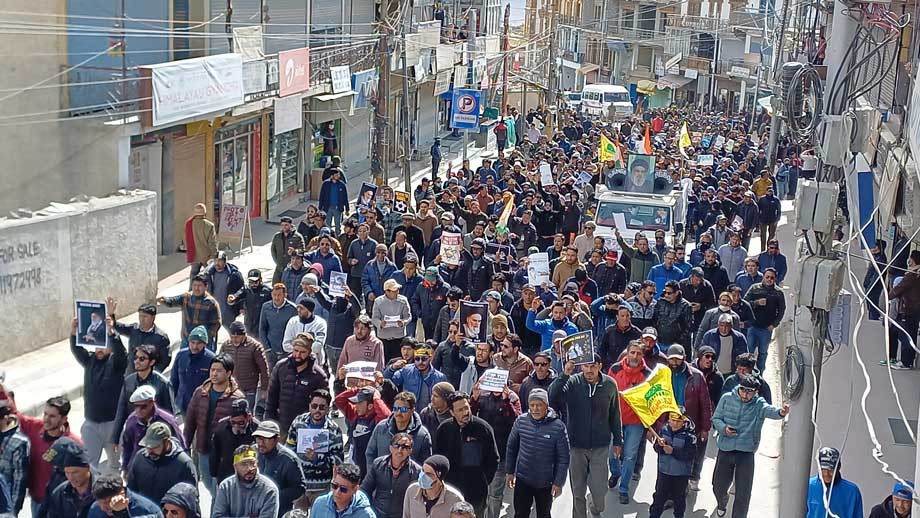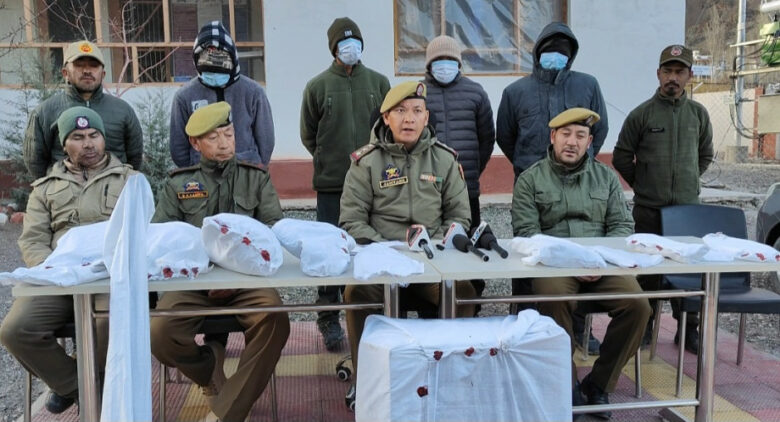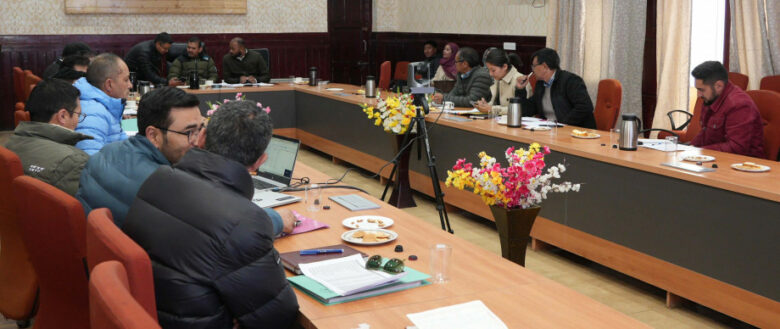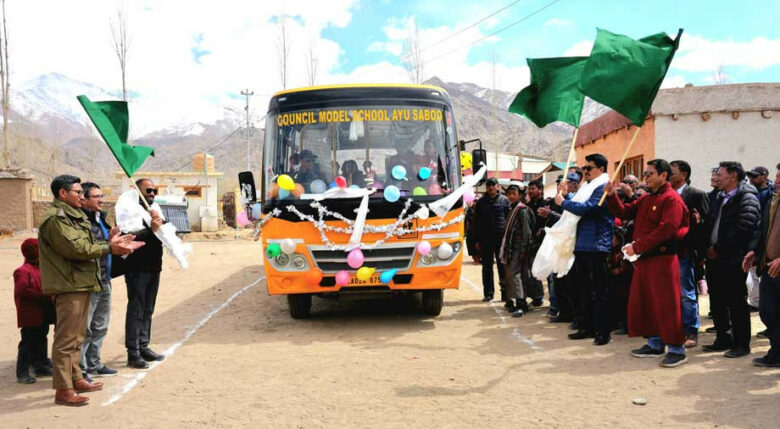
Leh marked International Quds Day on March 28 with a large gathering at Polo Ground, Leh. The event, organized by the Shia Muslim community, aimed to express solidarity with Palestine and protest against Israeli occupation.
Thousands of participants from Ranbirpur, Thiksay, Shey, Chuchot, Phyang, and Leh Town took part in a rally that began at Imam Bargha, Leh, and concluded at Polo Ground. The event was attended by religious scholars, community leaders, and students, all united in their call for justice.
Sheikh Zainul Abideen, President of Majlis E Ulema, Leh, emphasized that fundamental rights should be granted to all, irrespective of nationality or religion. He condemned the deprivation of Palestinian rights and described the violence against them as inhumane.
Ashraf Ali Barcha, President of Anjuman Imamia, highlighted the history of Quds Day, first observed in 1979 in Iran. He explained that the day was established as a reminder to stand against oppression and advocate for Palestinian rights.
Chering Dorjey Lakrook, President of the Ladakh Buddhist Association, addressed the ongoing conflict between Israel and Hamas, stressing the humanitarian crisis and the loss of innocent lives, including women and children. He criticized the U.S. for its military and political support of Israel and expressed hope that protests from Ladakh would offer moral support to those suffering.
Additionally, Quds Day was observed at Chuchot Gongma by the Anjuman Imamia youth wing in collaboration with the Hussaini Federation.
International Quds Day, also known as Yaum al-Quds, was established in 1979 by the late Iranian leader Ayatollah Ruhollah Khomeini. Observed annually on the last Friday of Ramadan, it serves as a global platform to express solidarity with the Palestinian people and oppose the Israeli occupation of Jerusalem.
At the heart of Quds Day observance is the Al-Aqsa Mosque, located in Jerusalem’s Old City. As Islam’s third holiest site after Masjid al-Haram in Mecca and Masjid an-Nabawi in Medina, Al-Aqsa holds immense religious, historical, and political significance. However, the mosque remains under Israeli control, and the suffering of Palestinians continues, making Quds Day a symbol of the broader struggle for Palestinian liberation.
Imam Khomeini envisioned Quds Day as a unifying call for Muslims and oppressed people worldwide. He emphasized that the observance transcends geographical and sectarian boundaries and represents a larger struggle for justice, dignity, and the defense of Islamic values.
Over the years, Quds Day has evolved into a global movement to condemn Israeli aggression and advocate for Palestinian rights, highlight the struggles of Palestinians, particularly in Gaza and the West Bank and nite diverse Muslim communities and humanity in solidarity with the Palestinian cause.
Ladakh’s observance of International Quds Day reinforced the region’s stance against injustice and its commitment to supporting oppressed communities worldwide.


